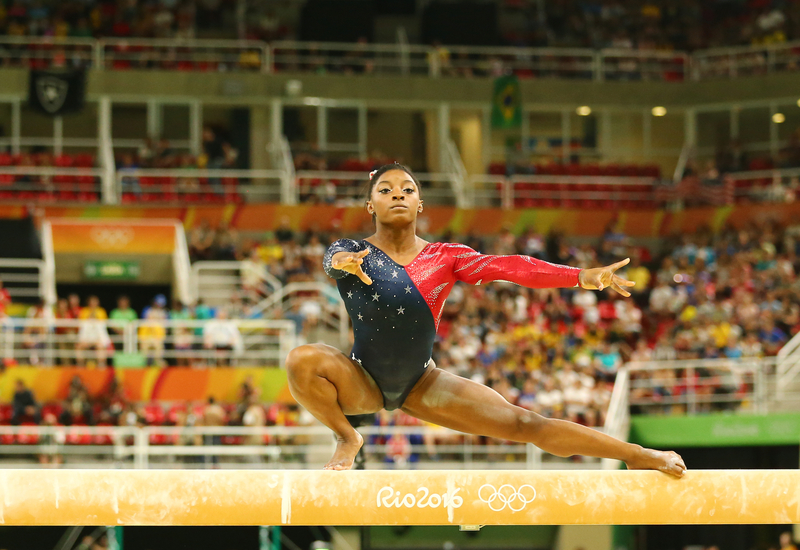What happened to Simone Biles at Tokyo 2020?
The consensus heading into the 2020 Tokyo Olympics was that Team USA’s poster athlete, Simone Biles, would maintain her dominance in the gymnastics arena, adding to her four gold and one bronze medal from Rio de Janeiro five years prior. Despite a few mishaps during qualification, Biles advanced to several finals. During the team final on 27 July 2021, Biles hesitated on her vault mid-air and subsequently left the competition floor before returning shortly after. She later withdrew from the remainder of the team final due to mental health issues, saying she didn’t want to jeopardise her team’s chances of winning a medal, as well as her own health and safety. Despite this, her performance helped the US win a silver medal in the event. Following several medical examinations, Biles withdrew from the individual all-around, vault, floor exercise, and uneven bars finals, citing ‘the twisties,’ a psychological barrier that causes gymnasts to lose positional awareness when performing twisting elements.
What was the response?
Some prominent individuals condemned Biles, calling her ‘the biggest quitter in sport’, a ‘national embarrassment’ and ‘selfish’. Despite criticisms, the decision to prioritise her mental health was praised by others, instigating broader discussions on athlete mental health. On 2 August 2021, Biles confirmed her participation in the balance beam final, where she secured bronze medal. Despite having won a total of 32 Olympic and World medals, she described this bronze as the most meaningful because it symbolised her focus on mental health and perseverance. The divergent discussion surrounding Biles sheds light on the disparities in attitudes toward athlete mental health, not only within the highly pressurised world of elite sport, but also more broadly within society.
How did social media frame her withdrawal?
After analysis of the Facebook narrative surrounding Biles’ withdrawal from four Facebook accounts – Simone Biles’ own profile, Fox News and CNN (American news outlets), and Bleacher Report (international news outlet specialising in sports and sports culture). A total of 87,714 user comments were collected from 29 posts covering the news and were analysed using the qualitative software, Leximancer.
The findings illustrate how social media allows users to frame circumstances either positively and negatively depending on their allegiance, often attributing their viewpoint to personal values and experiences. While many praised Biles for prioritising her mental health, she also faced criticism for the timing of her withdrawal, with many claiming she had quit, letting her team and country down.
Support for Biles generally came from within her own Facebook posts, whereby she was considered an inspiration and role model, particularly for young Black females. Others suggested that she had shown courage and strength for putting her own wellbeing first despite pressure to compete.
A substantial number of users voiced negative opinions toward Biles, and these were frequently coupled with reprimand and disapproval. Ironically, many of those who opposed Biles’ action questioned her status as an athletic superstar while still believing she was privileged enough to resist mental health issues. Reproach suggested that as an elite athlete, she should be able to handle pressure. This criticism was frequently expressed through disparagement and mockery directed at Biles.
The analysis uncovered discussion about both race and gender. These topics were used to praise and condemn Biles, as well as to accuse other users of racism and sexism if they critiqued her. It was evident that many users attacked those with differing opinions to their own, supporting previous research which has indicated that users tend to attack those whom they perceive to say something wrong.
Given the polarising nature of comments, this research corroborates wider research in that there is still a stigma associated with mental health, with many users dismissing Biles’ struggles or viewing them as an excuse for poor performance. While suggestions have been made that attitudes toward mental health are becoming more progressive, the current findings do not fully support this claim. Instead, evidence suggests that, while Biles received support on social media, the reaction was hardly overwhelming in her favour.
Conclusion
The case of Simone Biles raises concerns about the media’s responsibilities regarding athletes’ mental health. Reporters should consider how their reporting of mental health issues may impact their audiences. Biles’ experience exemplifies how mental health should and should not be treated. Positive portrayals of mental health disclosures in both traditional and social media can extend beyond high-profile individuals, establishing the benchmark for how society reacts to such revelations and how mental health may become a less controversial issue among the public.
In July 2022, Biles became the youngest living person to receive the Presidential Medal of Freedom, the nation’s highest civilian honour. The White House described her as a ‘prominent advocate for athletes’ mental health and safety, children in the foster care system, and victims of sexual assault’. Despite the recognition, Biles’ withdrawal in Tokyo remains a disputed topic on social media with many questioning President Biden’s decision to award her with the honour.
In conclusion, this study uncovered two significant findings. Firstly, the general public are unable to reach an agreement on athlete mental health, with many believing that athletes should be immune to the stresses of competition. The story of Simone Biles raises the question of how progressive the public is regarding mental health issues. Secondly, while not a major theme throughout the story analysis, Biles’ gender and race were framed both positively and negatively by social media users in ways that male or white athletes may not have experienced.
This research is also published in the International Journal of Sports Communication.










Rate and Review
Rate this article
Review this article
Log into OpenLearn to leave reviews and join in the conversation.
Article reviews